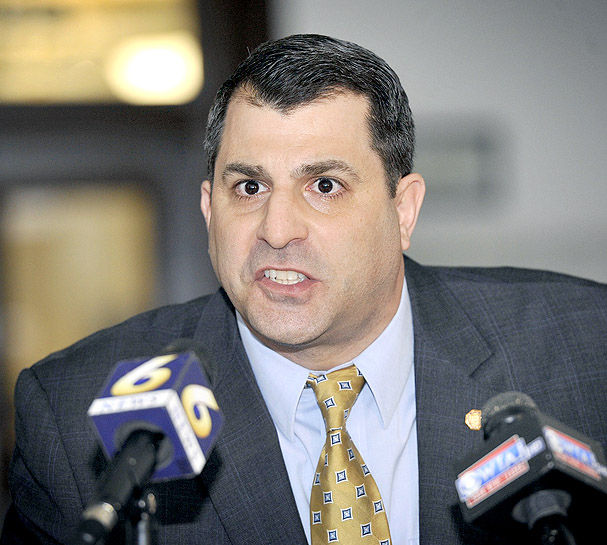House Eyes Statute of Limitations; Bill Passes out of Committee
By Dave Sutor
Legislation, supported by state Rep. Bryan Barbin, D-Johnstown, that would eliminate the statute of limitations for criminal prosecution in future child sexual abuse cases and raise the limit to age 50 in civil cases passed through the House Judiciary Committee on Tuesday. House Bill 1947 will next go to the full House for consideration. “It needs to be done,” said Barbin, a member of the Judiciary Committee. “If we’re going to do it, it needs to be done right and be done for everybody. I’m very thankful that we moved it through committee.” Statutes of limitations have come to the local forefront, since, in March, the Pennsylvania Office of Attorney General released a grand jury report, alleging the Roman Catholic Diocese of Altoona–Johnstown carried out a decades-long coverup to shield at least 50 priests and other religious leaders accused of sexually abusing children. However, due to the statutes, charges were only able to be filed against three priests from the Third Order Regular, Province of the Immaculate Conception, who allegedly let Brother Stephen Baker remain at Bishop McCort High School even though they reportedly knew about allegations of sexual abuse made against him. Since the grand jury information was released, the attorney general has called for abolishing the statutes. Currently, victims who were under the age of 18 when the abuse occurred can file civil charges until age 30. Criminal charges can be brought until age 30 for individuals born before Aug. 27, 2002. That limit moves to age 50 for alleged victims born after Aug. 27, 2002. “We believe the grand jury’s findings show there is a great need for reforms that will aid victims of sexual abuse,” said Jeffrey Johnson, assistant press secretary for Attorney General Kathleen Kane. “We would certainly like to see this legislation continue to move forward.” The legislation includes two amendments put forth by Barbin, who represents the 71st Legislative District. They would waive immunity for state and local entities, such as city governments, that display gross negligence in failing to deal with a child sexual abuser within their organizations. “The bottom line is that the two amendments say we’re going to apply this to everybody,” Barbin said. The new law, if adopted, would apply to future allegations. Some legislators, including state Rep. Mark Rozzi, D-Berks, wanted to not only eliminate the statutes of limitations, but also create a time period during which alleged victims could bring charges for incidents that occurred in the past. However, there was no retroactive component to House Bill 1947, which was introduced by House Judiciary Committee Majority Chairman Ron Marsico, R-Dauphin. “My choice to not include a retroactive period in this legislation was not easy,” Marsico said. “As a father and grandfather, I am horrified by allegations of sex abuse. But, I also fear the huge negative impact it would potentially have on many nonprofit community groups and the services they provide due to the massive lawsuits they might end up facing for actions that may have occurred decades ago by people who are no longer even affiliated with those nonprofit groups. These groups were created to help people and I would not want those people to lose access to life-supporting services.” David Clohessy, director of the Survivors Network of those Abused by Priests, offered both support for the bill and criticism of there being no retroactive component. “We’re glad Pennsylvania lawmakers are finally moving to reform the state’s archaic, predator-friendly statute of limitations but disappointed that because there’s no civil window, hundreds who have committed or concealed child sex crimes will remain hidden and escape responsibility,” Clohessy said. Barbin said amendments that create an opportunity to file civil claims for past actions might be considered when the bill is discussed by the full House.
|
.
Any original material on these pages is copyright © BishopAccountability.org 2004. Reproduce freely with attribution.
